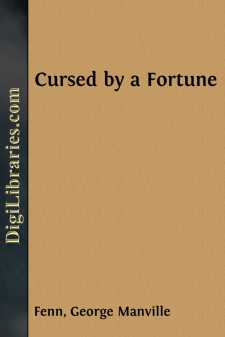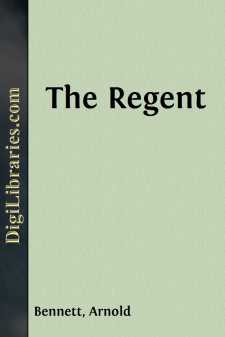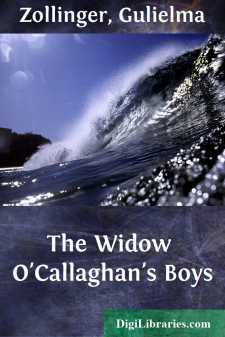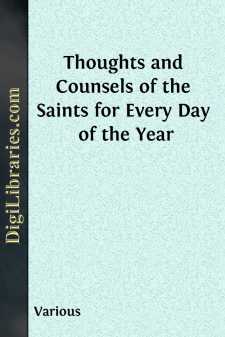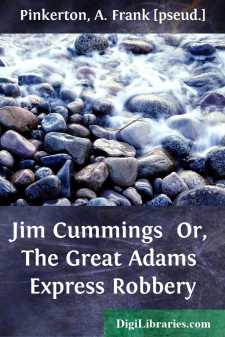Fiction
- Action & Adventure 180
- Biographical 15
- Christian 59
- Classics
- Coming of Age 5
- Contemporary Women 3
- Erotica 8
- Espionage/Intrigue 12
- Fairy Tales, Folklore & Mythology 236
- Family Life 169
- Fantasy 117
- Gay 1
- General 596
- Ghost 32
- Historical 808
- Horror 43
- Humorous 160
- Jewish 25
- Legal 4
- Medical 22
- Mystery & Detective 315
- Political 49
- Psychological 41
- Religious 64
- Romance 159
- Sagas 11
- Science Fiction 730
- Sea Stories 113
- Short Stories (single author) 537
- Sports 10
- Suspense 1
- Technological 8
- Thrillers 2
- Urban Life 31
- Visionary & Metaphysical 1
- War & Military 173
- Westerns 199
Classics Books
Sort by:
Chapter One. âYes, James; this is my last dying speech and confession.â âOh, papa!â with a burst of sobbing. âBe quiet, Kitty, and donât make me so miserable. Dying is only going to sleep when a manâs tired out, as I am, with the worries of the world, money-making, fighting for oneâs own, and disappointment. I know as well as old Jermingham that itâs pretty...
more...
by:
Arnold Bennett
CHAPTER I DOG-BITE I "And yet," Edward Henry Machin reflected as at six minutes to six he approached his own dwelling at the top of Bleakridge, "and yet—I don't feel so jolly after all!" The first two words of this disturbing meditation had reference to the fact that, by telephoning twice to his stockbrokers at Manchester, he had just made the sum of three hundred and forty-one...
more...
CHAPTER I 'Ain't this ripping?' said I to my wife. 'Yes, delightful,' she said. It really was rather nice. It had been quite hot in the plains, and was pleasantly cool up here. My wife and family had preceded me and had been settled for some weeks in the house which we had taken in the hills for the hot weather, and now I had just arrived on two months' leave. We were...
more...
CHAPTER I When Mr. O'Callaghan died, after a long, severe, and expensive sickness, he left to his widow a state of unlimited poverty and seven boys. "Sure, an' sivin's the parfect number," she said through her tears as she looked round on her flock; "and Tim was the bist man as iver lived, may the saints presarve him an' rist him from his dreadful pains!" Thus did...
more...
by:
Various
January 1 THERE are two guarantees of a wise rule of conduct: the thought before action, and self-command afterward.—ST. IGNATIUS. 2 When we receive with an entire and perfect resignation the afflictions which God sends us they become for us favors and benefits; because conformity to the will of God is a gain far superior to all temporal advantages.—ST. VINCENT DE PAUL. 3 All perfection consists in...
more...
A HISTORY OF THE TOWN OF FAIRFAX When man reaches out into space to explore a new planet, his adventure will be comparable in many ways to that of the colonists who braved the space of water in the early seventeenth century to establish their proprietary rights on a strange continent called "America". These colonists found themselves confronted with the need to feed, house and clothe themselves...
more...
CHAPTER I. THE CONSPIRATORS—THE FORGED LETTER—THE PLAN. In the rear room of a small frame building, the front of which was occupied as a coal office, located on West Lake street, Chicago, three men were seated around a square pine table. The curtains of the window were not only drawn inside, but the heavy shutters were closed on the outside. A blanket was nailed over the only door of the room, and...
more...
by:
Margaret Penrose
PUSHING OFF "Oh, Cora! Isn't this perfectly splendid!" exclaimed Bess Robinson. "Delightful!" chimed in her twin sister, Belle. "I'm glad you like it," said Cora Kimball, the camp hostess. "I felt that you would, but one can never be sure—especially of Belle. Jack said she would fall a prey to that clump of white birches over there, and would want to paint...
more...
CHAPTER I. "That child," said my aunt Mercy, looking at me with indigo-colored eyes, "is possessed." When my aunt said this I was climbing a chest of drawers, by its knobs, in order to reach the book-shelves above it, where my favorite work, "The Northern Regions," was kept, together with "Baxter's Saints' Rest," and other volumes of that sort, belonging to my...
more...
by:
Hilaire Belloc
INTRODUCTION Between those last precise accounts of military engagements which antiquity has left us in small number, and what may be called the modern history of war, there lies a period of many centuries—quite 1400 years—during which the details of an action and even the main features of a campaign are never given us by contemporary recorders. Through all that vast stretch of time we are...
more...


